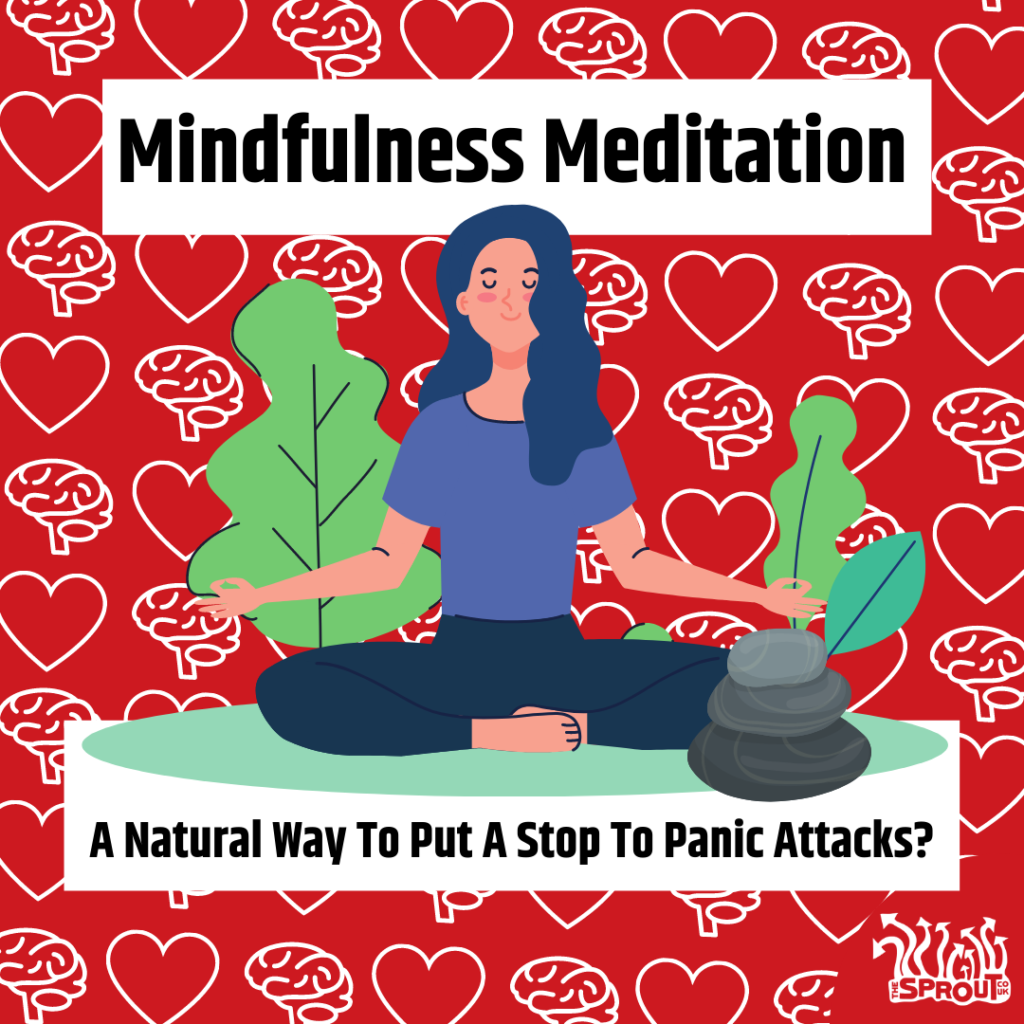This article was originally published by Lucy Winston in January 2020. TheSprout are reposting it for Stress Awareness Month 2021.
Among the many natural remedies for anxiety, one stands out: mindfulness meditation, found in many studies to reduce levels of stress hormone, cortisol, in a powerful way.
Around 13% of adults in Wales have received treatment for a mental health condition, and one of the most prevalent of these is anxiety disorder – a mental condition that manifests itself in many ways, including a racing heart rate, shortness of breath, nausea, pins and needles, and sometimes panic attacks.
What Happens During A Panic Attack?
Panic attacks often lead to hyperventilation, and oddly enough, the problem is oxygen overload. Essentially, when your body perceives a threat, you may start to breathe in quickly, thus overloading your system with Oxygen. The result is something unexpected: a sensation that you ‘lack air’ or that your lungs cannot take in as much air as you need. The immediate antidote to hyperventilation is breathing in a paper bag. This will help lower the amount of Oxygen in your blood. Mindfulness meditation can help at an early stage, stopping you from entering into a state of panic to begin with.
What Makes Mindfulness Meditation So Powerful Against Panic?
Studies on various groups (including people recovering from cancer, stressed college students and older patients) have shown that mindfulness meditation lowers levels of the stress hormone, cortisol (as measured in saliva). However, even a single mindfulness meditation session can reduce anxiety within under an hour. One of the most powerful components of mindfulness meditation is pranayamic (or controlled) breathing – which involves taking a deep breath for several seconds, and taking even longer to exhale. When you engage in this type of breathing, your heart rate almost immediately drops, and you are able to take control of stress rather than let it get the better of you.
Trying Mindfulness At Home
Practising mindfulness meditation daily is one way to tackle stress proactively. You can start out with a programme like Headspace or Calm, both of which are highly renowned and embraced by everyone from stressed executives to children. These apps provide short breathing and mindfulness sessions, which can be completed in as little as five minutes. You can start out by simply mastering pranayamic breathing and moving on to the art of mindfulness itself – which involves acknowledging all thoughts and emotions (even difficult ones) but also letting them go, after realising that they are impermanent, as all things are.
Creating The Right Ambience
Cardiff Digs notes that the average home produces 112 pints of moisture per week through cooking, bathing and breathing. To practice mindfulness, ensure you have a nice, quiet spot at home. Your home should be mould-free and uncluttered, to enhance mental wellness. Did you know that there is a strong connection between damp, mouldy homes and mental illness? Anything that can hamper your respiration or dampen your mood, should be eliminated. Find a tidy, light-filled space and start breathing to the sound of chimes or peaceful music. Try to increase the length of your sessions as the days go by.
Where To Begin
You can sit or stand while you are meditating; what is important is to find a position you are comfortable in. As you breathe, pay attention to the entrance and exit of air from your body. If thoughts come into your mind, do not push them away; ride the wave of thoughts and emotions while reminding yourself that you control which of them you choose to engage. Practise letting go of emotions without judgement. If you find that you’re getting too distracted, go back to focusing strongly on your breathing.
Mindfulness meditation is currently used in many settings in which stress can be a trigger for pain, discomfort and even substance abuse. As a powerful cortisol buster, it is also a lifetime tool to have handy for when times get tough. Try to set aside a bit of time every day for meditation, using apps, videos and other tools that can help you reach a calmer state of mind.
Related Information
For more information on mental health, visit the Mental Health Information Page
Valley Steps: Valleys Steps are offering free online courses in mindfulness!

